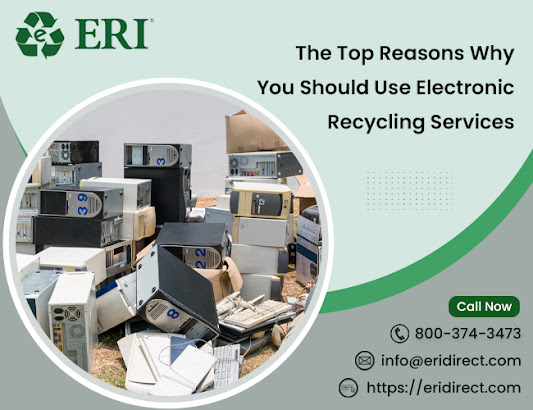Does Electronics Recycling Cost More?
Recycling is typically the first thing that comes to mind when considering simple actions that people may take to safeguard the environment. People have been embracing the idea that we need to reuse material, even electronics, to protect our non-renewable resources for decades. But how much does recycling electronics actually cost, why should we care?
Importance Of Recycling
E-waste is a hazardous waste that is non-biodegradable. It includes environmentally hazardous chemicals, acids, and other substances. Millions of tons of electronic garbage are being produced, which is becoming a significant global issue. Battery Recycling is crucial since it cleans up the environment where it is placed. After minor modifications, the components of e-waste could be reused or partially utilized. Reusing the materials lowers the need to purchase raw materials and assures that the unused items are repurposed.
Recycling Cost Of Electronics
Today, recycling is considerably more advanced and commonplace; it is carried out as a public service by regional authorities and social waste management businesses. Recycling, however, only demonstrates its financial value if the proceeds from the sale of recycled goods on the market are sufficient to cover the costs of the procedure (i.e. operations, labor, etc.). The price of electronics recycling varies depending on the state of the economy, just like most other services in a free market.
There are some products with a higher value among electronic waste and some with a lower value. Laptops, monitors, smartphones, tablets, flat-screen TVs, and generally any electronic device with a high resale value are examples of high-value items. When oil prices fall, low-value products, commonly referred to as Universal Waste Electronic Devices (UWED), are now more likely to lose value since they are more difficult to resell. These include wires, printers, microwaves, scanners, routers, CRT TVs, and printers.
Is It Profitable?
The recycling industry not only has a huge positive impact on the environment, but it can also be quite lucrative. Globally, it is thought to be a $100 billion industry. But in the case of electronic trash, this figure is dependent on a number of market conditions. This includes everything that uses electricity (i.e. laptops, TVs, stereos, etc.). As a result, the price of oil and the market for recovering electronic materials are currently correlated.
To begin with, businesses that produce electrical goods must purchase their raw ingredients from suppliers of commodities. In a free-market economy, businesses will often seek to maximize their profits by purchasing the cheapest commodities available. However, if oil is inexpensive, then producing new metals and plastics will also become affordable. These new products will thus be preferred by businesses over recycled ones, leaving recycling industry in a bit of dip.
.jpg)


